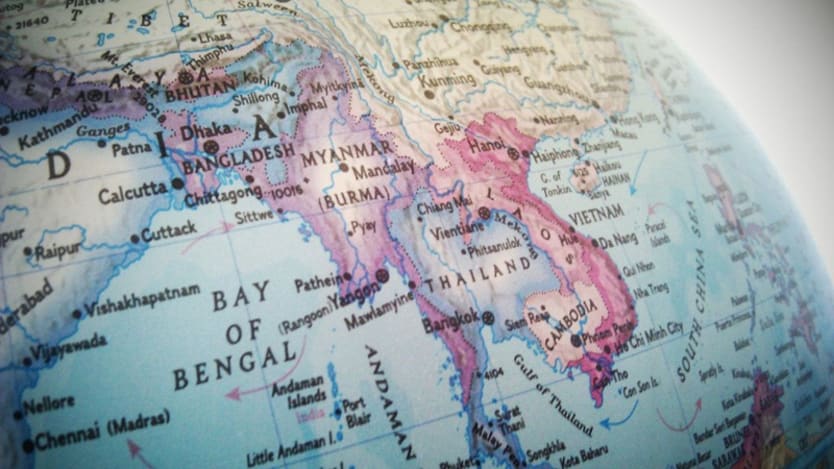
MANILA — Philanthropy could be a huge resource for development organizations in Asia, but a host of factors are keeping Asia’s billionaires and philanthropists from giving more, according to a new report.
Asia plays host to the largest number of billionaires in the world, with about 637 as of 2017, surpassing the number of billionaires in the United States (563) and Europe (342) for the first time, and the concentration of wealth in Asia is projected to grow over coming years.
That sounds like good news for nonprofits, social enterprises, and others, particularly those operating at the local level and with limited resources.
However, the “Doing Good Index 2018” — a report published Tuesday by Hong Kong-based research and advisory organization, the Centre for Asian Philanthropy and Society — finds that Asian philanthropists have reservations in sharing their wealth with organizations in the region, in large part due to a lack of trust.
“When we interviewed a lot of high net worth [individuals] prior to doing this study, we asked them, ‘what’s stopping you from giving more in the region?’ Many of them, most of them, said, ‘I don’t trust enough of the local organizations,’” Ruth Shapiro, founder and chief executive of CAPS, told Devex.
The trust deficit is triggered by a number of factors, including a lack of clarity and transparency over organizations’ missions and activities, and scandals involving or linking to charities in some way.
Most organizations that were surveyed in the study have websites, but a number of these websites are not easy to navigate and unable to clearly express the organizations’ work, said Mehvesh Mumtaz Ahmed, director of research at CAPS. This leaves philanthropists with little information on what organizations do, or how legitimate their operations are.
Scandals can also have grave implications, even years later. The report notes that a 2011 scandal in China involving an internet celebrity with a lavish lifestyle, who falsely claimed to be an executive of the Chinese Red Cross, continues to have an impact on philanthropic giving in the country.
But if these and other factors affecting philanthropic giving can be addressed, as much as $507 billion in philanthropic donations could be “unleashed” in the continent, not only from ultra high net worth individuals but also from other individuals with disposable income, Ahmed said. That amounts to about 2 percent of Asia’s GDP, comparable to the proportion of wealth put into philanthropic donations and social investments annually in the U.S., she added.
Addressing the trust deficit
The report finds there are ways to address the trust deficit in the social sector. This includes improvements in the regulatory environment, and favorable tax and fiscal policies for philanthropists.
Governments could encourage more transparency and accountability, for example, by making the registration process for organizations easier to navigate. Ensuring relevant laws and regulations pertaining to the sector are well communicated and easily understood is also key, but is currently not the case in countries such as Japan and South Korea. Almost 75 percent of organizations surveyed in these two countries said they have difficulty in navigating and understanding which laws and policies apply to them, and which government entities to approach. In Korea, for example, there are approximately 35 government bodies overseeing the charity sector, according to in-country experts.
Requiring organizations to report annually on their activities is also key in boosting donors’ confidence in organizations. But again, the report argues that governments should find balance in ensuring such requirements do not serve as a barrier for organizations, particularly small ones with little capacity and expertise to handle them.
But both Shapiro and Ahmed noted that organizations, not just governments, have a responsibility in improving the trust environment in the sector.
“Even if the government is not mandating this kind of reporting, we do see some organizations that voluntarily share information. So this kind of transparency and openness, whether it’s about operations [or] finances, really goes a long way and has a potential to mitigate the trust deficit,” Ahmed said.
Organizations being accountable, transparent, and able to communicate their impact can help people understand “why they are worthwhile organizations and deserving of support,” Shapiro said.
Incentives for giving
Tax and fiscal incentives, while not directly speaking to the trust deficit, can also have huge implications for increasing philanthropic giving in the continent, according to the report authors.
“Incentives matter because it signals that governments want high net worth or anyone really that has disposable income to engage in these kinds of activities. That’s really important,” Shapiro said.
The study found that the majority of the governments covered — specifically 13 of the 15 studied — offer tax deductions for individual philanthropic giving. Fourteen also give similar incentives for corporate giving. The challenge, however, is that some economies put a cap on deductions. Individual and corporate tax deductions in India, Hong Kong, Korea, Pakistan, and China range from 10 percent to 50 percent. In Myanmar, there are no tax deductions for individual or corporate giving.
Some countries have established laws mandating companies to provide a set percentage of funding for corporate social responsibility, hoping this would help inject funds into their social sectors.
“But commentators have warned that the funds could simply flow to established organizations or companies’ own foundations,” according to the report.
Read more Devex coverage on philanthropy.




